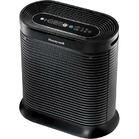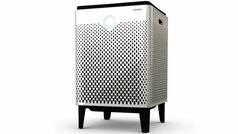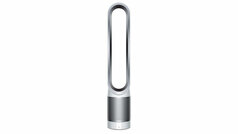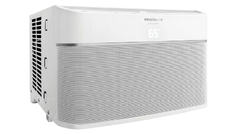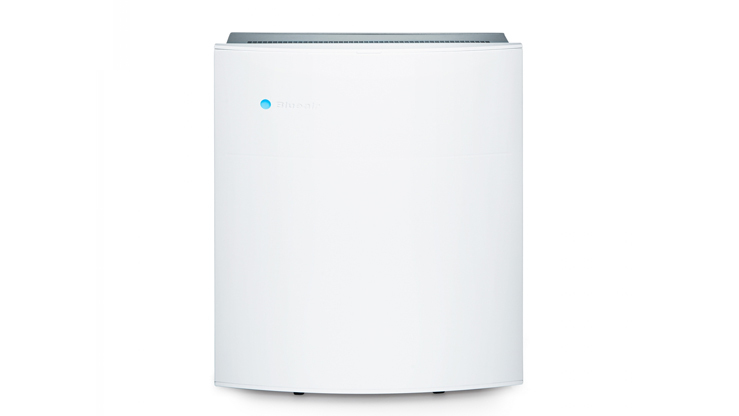
[ad_1]
The $399 Blueair Classic 205 is a Wi-Fi-connected smart air purifier. It houses a large HEPA filter and a fan motor in an attractive design to clean indoor air and remove pollutants, and you can control it from wherever you are with an app. But the 205 gets quite noisy at high settings, and you need to buy a separate $199 accessory if you want it to turn on and off automatically, adding to the already high price. The Blueair Classic 205 could be a viable option if you’re looking for an air purifier that doubles as a smart home design piece, but the Honeywell Bluetooth Smart Air Purifier HPA250B ($249.99 at Honeywell)(Opens in a new window) offers similar functionality for a lot less money.
Design and Features
Made of durable steel, the rectangular Classic 205 ($259.09 at Amazon)(Opens in a new window) measures 21 by 17 by 8 inches (HWD) and weighs 24 pounds. It works to clean the air in areas up to 280 square feet in size. The Airmega 300S , by contrast, covers up to 1,256 square feet, but is substantially more expensive.
The Classic’s design is attractive, with a minimal and modern aesthetic. The only distinguishing feature is a blue LED on the smooth, white front. You can adjust the LED’s brightness with the accompanying app. Air enters and exits via a grate, positioned on the top of the 205. Also at the top, under a lid, is a control panel with LED icons that indicate Wi-Fi connection and filter status, and an embedded touch button that controls the operating speed (from 1 to 3).
Similar Products
The back of the Classic 205 contains a large HEPA particle filter, which you can access via a sliding panel. The filter lasts about six months. There are two different filters you can buy: a basic one that removes harmful pollutants for $49.95 (included), or one that targets tobacco smoke and odors for $99.95. You can easily clean the grates on the back and top of the machine with a damp cloth.
The 205 consumes 20 to 80 watts of energy depending on fan level, with a decibel level of 32 to 56. An optional Blueair Aware(Opens in a new window) accessory, sold separately for $199, has a built-in indicator that glows from blue to orange depending on the amount of volatile compounds in the air. With it, the Classic 205 can use an Auto function that turns it on and off automatically. The Aware also pushes notifications about pollution events to your connected device, so you can remotely turn it on when a pollutant is detected, or leave it on Auto mode. We tested the purifier with this accessory, but for the price, I wish these features were built in.
Setup, App, and Performance
Setup is easy. Just slide the included HEPA filter inside the machine, snap the panel on, and plug it into an outlet. Blueair recommends you place the air purifier as central in the room as possible or about six inches from the wall. Then download the free Blueair Friend app on your Android or iOS device and follow the simple on-screen instructions to connect the purifier to your Wi-Fi network.

As mentioned earlier, I tested the Classic 205 along with the Blueair Aware, which measures particles, volatile compounds such as dander and gas, estimates CO2, and measures temperature. It needs about six days to calibrate its sensors before it can start detecting anything, so it could be a while before you start to notice any improvements in air quality. That said, I set the Classic 205, along with the Blueair Aware, in the middle of a dusty, closed-off testing room in PC Labs. As you can see in the graph above, soon after I set it up, air quality began to noticeably improve. I lit a lighter in the room, which the Blueair Aware detected—its LED immediately turned orange.
Like the Dyson Pure Cool Link ($349.00 at Amazon)(Opens in a new window) , the Classic 205 gets quite loud when the fan intensity is turned up to the highest setting. Unlike the Pure Cool Link, the Blueair app always stayed connected, something Dyson’s air purifier had trouble with.
Conclusions
The Blueair Classic 205 is an attractive way to remove pollutants from the air in your home, and Wi-Fi connectivity makes it easy to control from anywhere. But it requires deep pockets, especially if you spring for the Blueair Aware accessory, which, as I see it, is a necessary addition. That increases the price to $600, at which point the Dyson Pure Cool Link is less expensive, and doubles as a fan. Or you can spend a bit more on the Airemega 300S, which can purify a far more substantial amount of air. But your best option might be the Honeywell HPA250B. It only connects via Bluetooth as opposed to Wi-Fi, but it costs nearly half the price, cleans a slightly larger space, and automatically adjusts cleaning levels depending on local allergen counts.
3.0

(Opens in a new window)
(Opens in a new window)
The Wi-Fi-connected Blueair Classic 205 air purifier is an attractive, but pricey, way to improve the air quality in your home with the tap of an app.
[ad_2]
Source link : https://www.pcmag.com/reviews/blueair-classic-205

